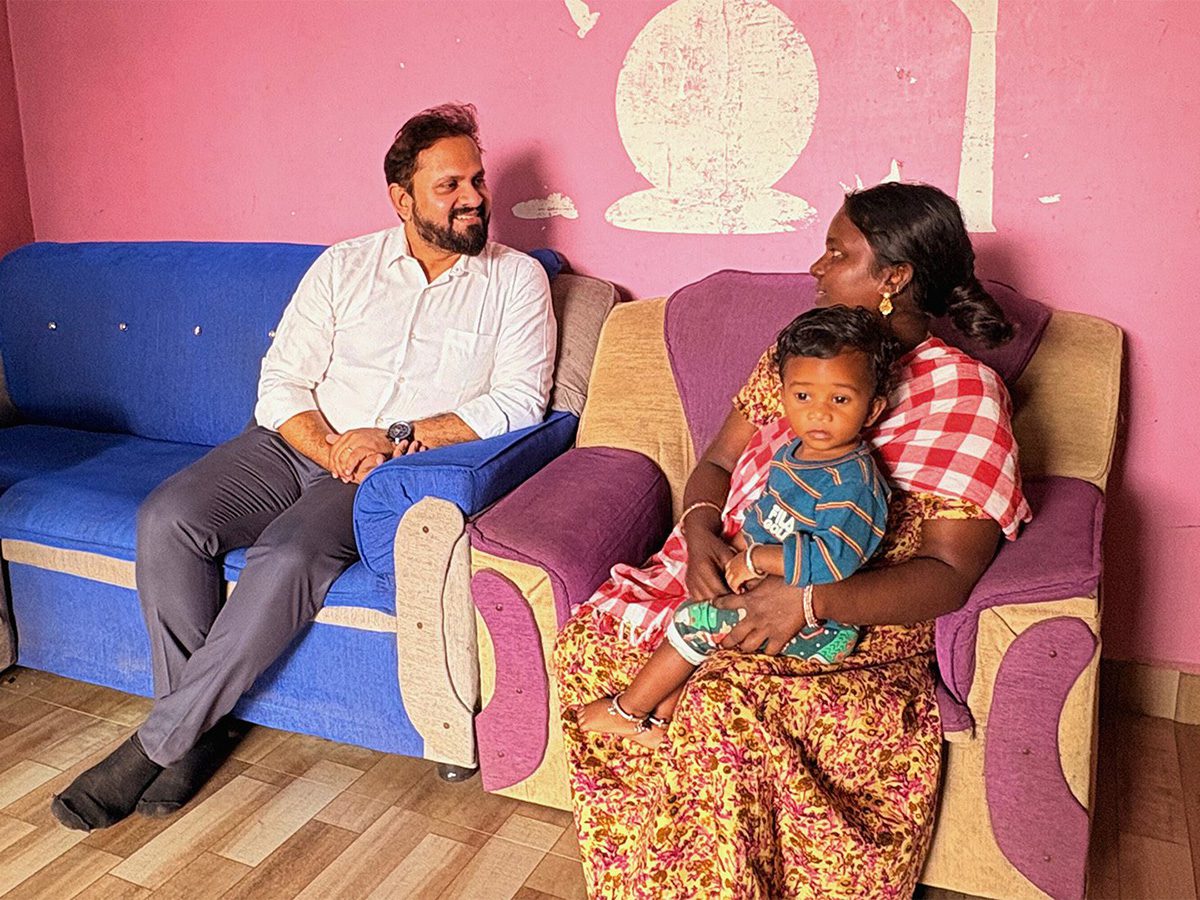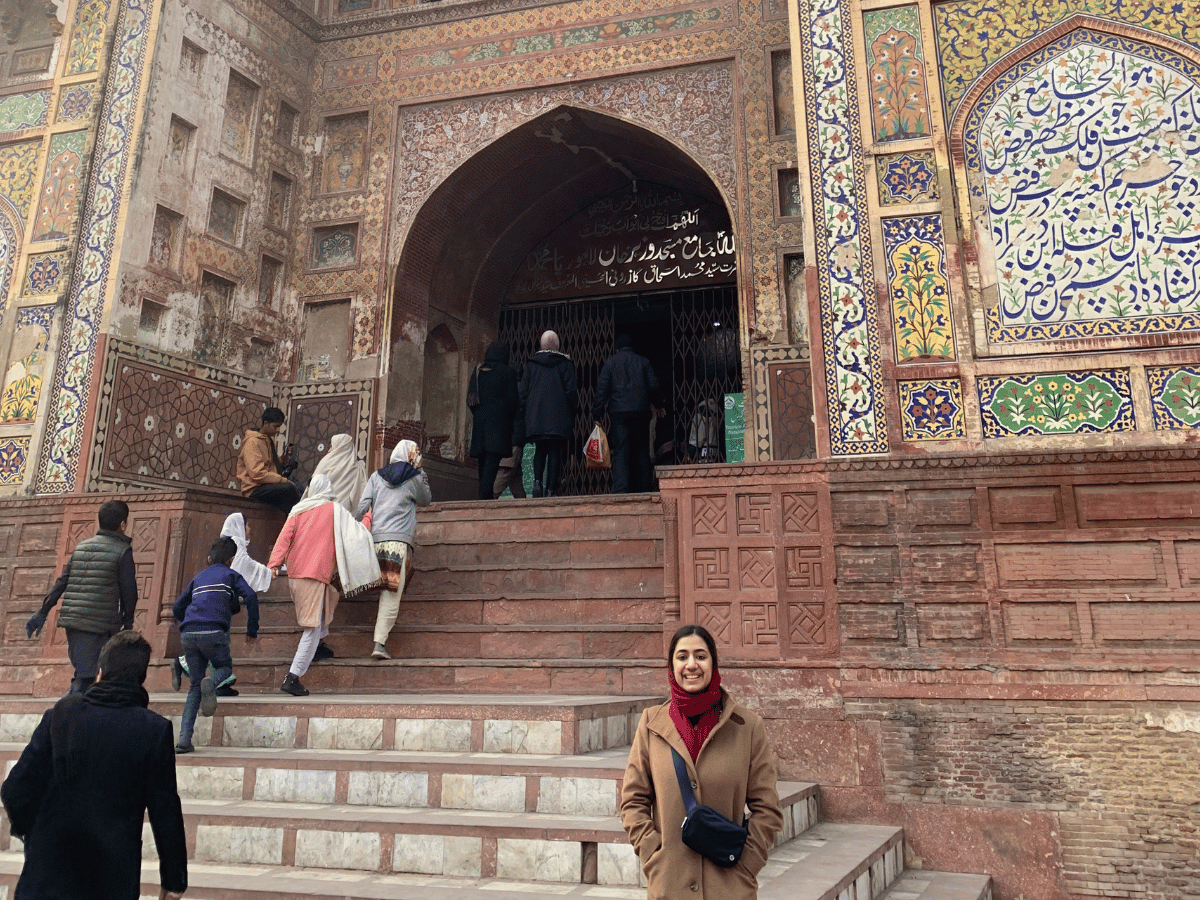Student Grants
Funding for Harvard Students
The Mittal Institute provides opportunities for students from across Harvard University to deepen their understanding of South Asia. Both undergraduate and graduate students are welcome to apply.
Types of Grants

RESEARCH
Research grants are awarded to students pursuing research on specific topics that could contribute to a thesis or dissertation or if the applicant has done preliminary work on the topic. Individual independent research will be considered if these requirements are fulfilled.

INTERNSHIP
Internship grants are awarded to students to work with specific organizations on a project developed by either the organization or in collaboration with the internship-site. Students are responsible for finding a placement on their own before applying for funding from the Mittal Institute. This list of organizations where previous Harvard students have had successful internships can serve as inspiration, but students are also encouraged to consider organizations outside of these suggestions.

LANGUAGE
Language study grants are awarded to students who choose to pursue an intensive study of a South Asian language. Students can choose to either study the language independently or through an institution. This includes language courses at American Institute of Indian Studies (AIIS), South Asia Summer Language Institute (SASLI), and other language programs like the Landour Language School in Mussoorie. Please include the program fee amount in your CARAT budget. Partial tuition may be covered by the Lakshmi Mittal South Asia Institute grant.
One Grant Details
Summer grants run approximately 3 weeks.
Awards up to $3,000.
Eligibility
Harvard undergraduate or graduate students currently enrolled in the University. You must be enrolled at Harvard past the grant term to be eligible for funding (for example, students interested in Summer 2026 funding must be enrolled at Harvard in Fall 2026 to be eligible).
Deadlines
Summer 2026 Deadline: Friday, February 27, 2026 at 11:59 PM EST
Summer grant decisions to be released by mid-March.
How to Apply
All application materials should be uploaded and submitted via CARAT. Click here for Undergraduate applications and click here for Graduate Student applications.
All applicants will need to submit the following:
- One to two page proposal detailing your rationale and approach to pursuing this project (not including supplemental materials)
- Up-to-date one-page resume
- Current/most recent transcript (unofficial printout is acceptable)
- Two letters of recommendation (Your recommenders may upload their letter directly to the CARAT system or email them to mittalsai@fas.harvard.edu)
In addition:
For Research: Annotated bibliography (no more than two pages)
For Internships: Letter of acceptance detailing the terms of your internship (must include name of the organization, supervisor information, dates of proposed internship)
For Language Study: Letter of acceptance stating your acceptance or participation in language study (if you are taking courses, enrolling in a program, or receiving private tutorage)
Contact:
Carlin Carr
Assistant Director of Programs and Outreach
carlincarr@fas.harvard.edu
Important Dates
Summer Grant Deadline:
Friday, February 27, 2026 at 11:59 PM EST
Past Grantee Stories

Climate Change and Maternal Health
Saravanan Thangarajan, Master of Medical Sciences in Global Health Delivery Candidate, earned a student grant to travel to Tamil Nadu, where he explored the impact of climate change on maternal and infant health.

Internship with AGHS Legal Aid Cell in Pakistan
Imaan Mirza ’25 earned a Mittal Institute student grant to intern with AGHS Legal Aid Cell in Pakistan, a law firm that provides free legal representation to the vulnerable and fights for the human rights of the disenfranchised.
APPLY: UNDERGRADS
APPLY: GRAD STUDENTS
SUBSCRIBE TO OUR NEWSLETTER
Frequently Asked Questions
Can students apply as a group?
Group applications are not accepted. Each student in the group should submit an individual application and specify the intentions of their group in the research plan.
Are students eligible if they’re on leave or if they have graduated by the time of their travel?
Students on leave are ineligible for Harvard funding unless expressly permitted by the administrative body that authorized the leave of absence. Students must be enrolled in the term following the grant period to be eligible for funding (for example, you must be enrolled in classes for the fall term following the summer term you are interested in being funded for; if you are graduating in May, you would not be eligible for funding for the summer term that follows).
How much funding is available?
Grant awards typically range from $1,000-$3,500, but most are between $2,000-$3,000.
Can students apply to use funding in countries that are not located in South Asia?
The Mittal Institute aims to fund projects that thoroughly engage with South Asian topics, even if they do not take place in South Asia.
Should I apply to other centers for funding?
Yes, but please note that you must submit individual applications to each center. If your proposal deals with cross-border issues in Asia, consider applying to the Asia Center for funding. Or if it is an India-China research project, consider applying to the Fairbank Center. Or if you’re studying a language prevalent in multiple regions or on regional borders, like Tibetan or Burmese, consider applying to the centers that encompass those regions and countries. Please note any additional funding sources that you are applying to in your CARAT application.
I am applying for an internship or language study grant, but I do not have a confirmation email yet; can I still apply for funding?
If you have not received confirmation in time for the application deadline, please submit proof that you have applied for the program and some information on when you expect to get a decision. If you are selected for a grant from the review committee, your grant would be only conditional on your admittance into the program; you will need to have a confirmation by the time grant decisions are released (mid-November for winter grants, late March for summer grants).
What makes a good application?
Proposals
Proposal documents should demonstrate that your idea thoroughly engages with South Asia – this means that the core exploration of the proposal should be distinctly South Asian, rather than just glancingly. For example, a proposal that explores South Asian history, culture, policy, environment, etc. would be suitable for funding, but something like a randomized controlled trial that just happens to take place in South Asia would not.
Research proposals should demonstrate feasibility, especially given the time frame – while your proposal may identify an incredible idea, if it does not detail how you will study that idea within the timeframe of the grant period, it may not make for a good application. Research proposals should also detail what actions will be taken in pursuit of that research – for example if it is focused on surveys or interviews, the proposal should detail how it would identify, contact, and select participants.
Internship and language study proposals should detail what work the student has already done in that discipline (previous coursework, work experience, language proficiency, etc), and how the internship/language program would build on that experience to advance your expertise in your discipline. Language study proposals should also make it clear why you wouldn’t be able to pursue that language study at Harvard. For example, if that language isn’t taught at Harvard or isn’t taught at an advanced level, you should make that case in your proposal; however, applications seeking funding for introductory Hindi courses over the summer are hard to justify when that coursework is already offered on campus.
Letters of Recommendation
Try to get letters from people who can speak to your strengths as well as the merits of your proposal. An ideal reference would be someone who knows you well and are subject matter experts; for example, while you could ask for a senior faculty member who works in the discipline of relevance to speak to your proposal strength, it would be better if you choose a faculty member who knows the subject matter and can testify that you are well qualified to pursue your project idea. Additionally, the letters do not have to come from a faculty member. While we generally advise that at least one of your references come from an academic expert, you may choose to ask a former supervisor to serve as one of your references.
Budget
While applications are not judged differently based on their budget requests (i.e. students who ask for more funding are not ranked differently than students who ask for less money), the budget should also demonstrate the attention to the detail you have put into your plan. It should be clear to the review committee that you have done the research into the realistic costs of your plan, including housing, food, transportation, etc. If your budget request is glaringly inaccurate or ignores the costs of what you’ve detailed in your proposal, that may be a point of consideration raised by the review committee.
